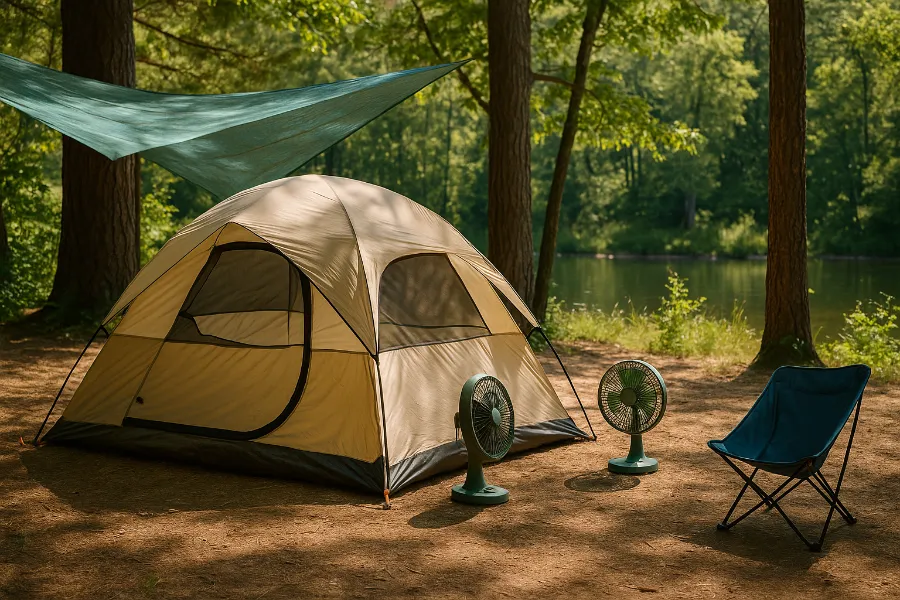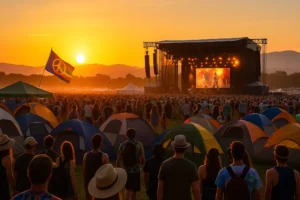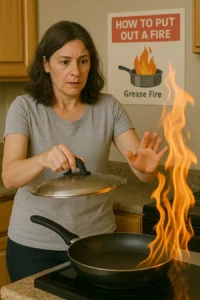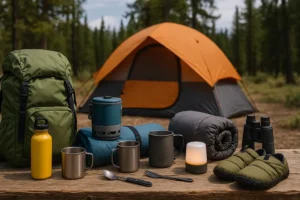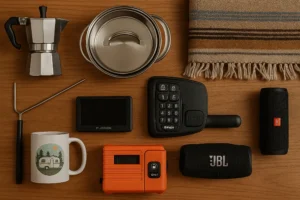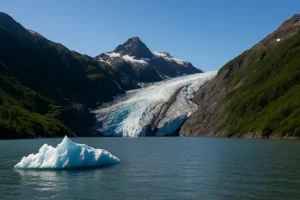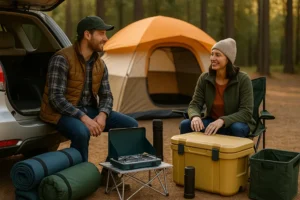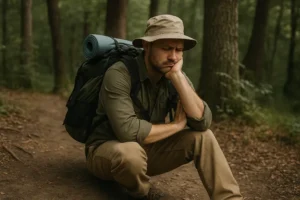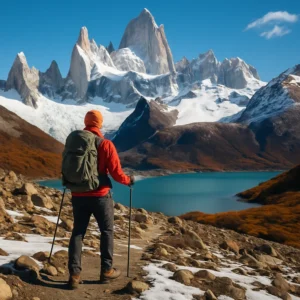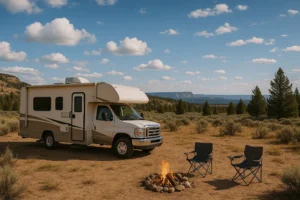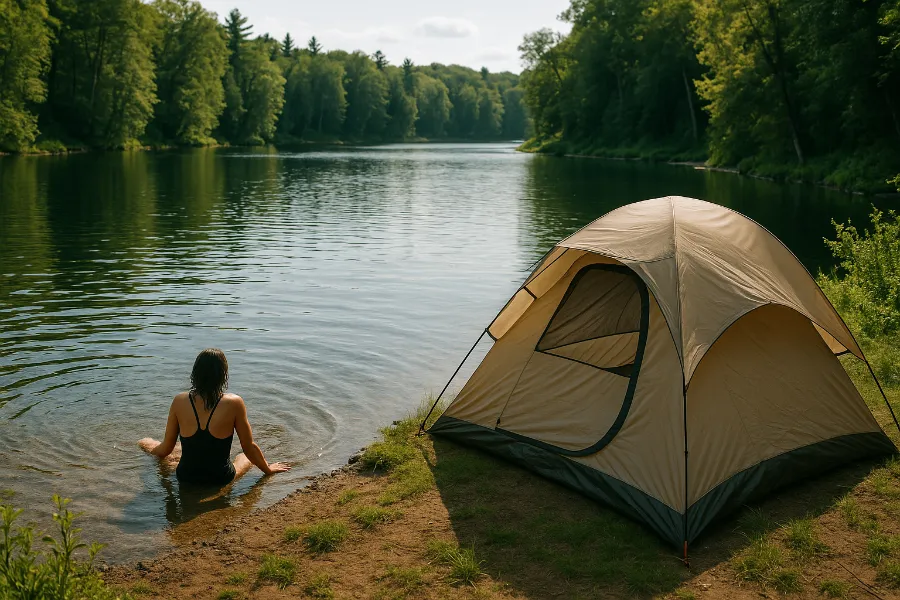
There’s nothing better than heading outdoors, pitching a tent, and falling asleep under the stars. But when summer heat waves hit, those starry nights can feel less like an escape and more like a sauna. Overheating while camping isn’t just uncomfortable — it can ruin your sleep, sap your energy, and even put your health at risk. That’s why finding smart ways to stay cool while camping is absolutely essential.
Luckily, with a mix of the right gear, campsite choices, and a few practical habits, you can transform a sweltering trip into a refreshing adventure. Below, I’ll walk you through proven strategies to help you keep cool from sunrise to sunset — and all through the night.
Choose the Right Campsite
The location of your tent or trailer can make or break your comfort level. A few simple choices can keep the heat at bay.
Find Shade
Whenever possible, pick a site with natural tree cover. Shade reduces direct exposure to the sun during the hottest hours of the day. If shade isn’t available, bring a tarp or canopy to create your own.
Go Higher
Higher elevation usually means cooler air. As a rule of thumb, temperatures drop about 3.5°F for every 1,000 feet of elevation gain. A mountain campsite will almost always feel more refreshing than a low valley in July.
Camp Near Water
Setting up near a river, lake, or stream offers natural cooling. You’ll have breezes off the water and the chance to take a dip whenever the heat builds up. Just remember to camp safely away from fast-moving currents or high-tide zones.
Set Up Your Tent for Ventilation
Your tent should feel like a breezy retreat, not a greenhouse.
Go Mesh-Heavy
Choose a lightweight tent with large mesh panels. This allows airflow while still keeping bugs out.
Remove the Rainfly
If there’s no rain in the forecast, leave the rainfly off. This prevents heat from getting trapped and gives you a clear view of the night sky.
Angle for the Breeze
Position your tent door and windows to catch the wind. Open vents strategically to maximize cross-ventilation while still keeping bugs out.
Use a Reflective Sunshade
Cover your tent with a reflective tarp during the day. Just make sure to leave space between the tarp and tent to avoid trapping hot air.
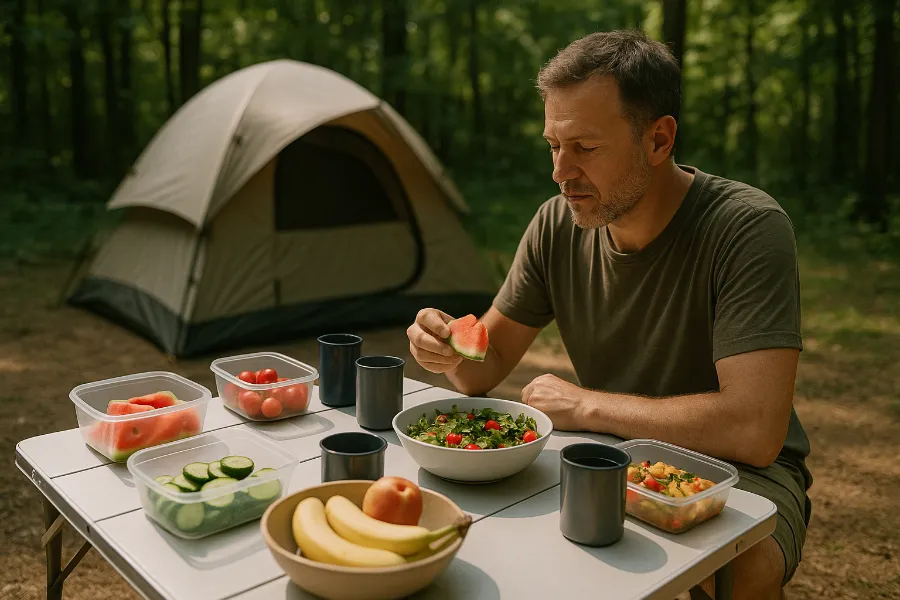
Create Shade and Airflow
Even the best tent setup needs a little backup cooling power.
- Portable fans: Battery-powered or rechargeable fans can be game-changers inside a tent. Hang one from the ceiling or clip it to a side pole for maximum circulation.
- Tarps and awnings: Adding a canopy over your cooking or lounging area gives you a shady escape during the day.
- DIY coolers: Some campers swear by homemade cooling systems using ice and fans — worth trying if you’re set up near your car or have power.
Optimize Sleeping Arrangements
Nighttime heat can wreck your sleep if you don’t prepare.
Ditch the Sleeping Bag
Most sleeping bags are designed for warmth, not ventilation. Instead, bring a lightweight sheet made from cotton, bamboo, or linen.
Sleep in a Hammock
Hammocks allow air to circulate all around your body, keeping you cooler than lying on insulated ground.
Rinse Before Bed
A quick rinse in a nearby lake or even a wipe-down with a cooling towel can help lower your core temperature before crawling in for the night.
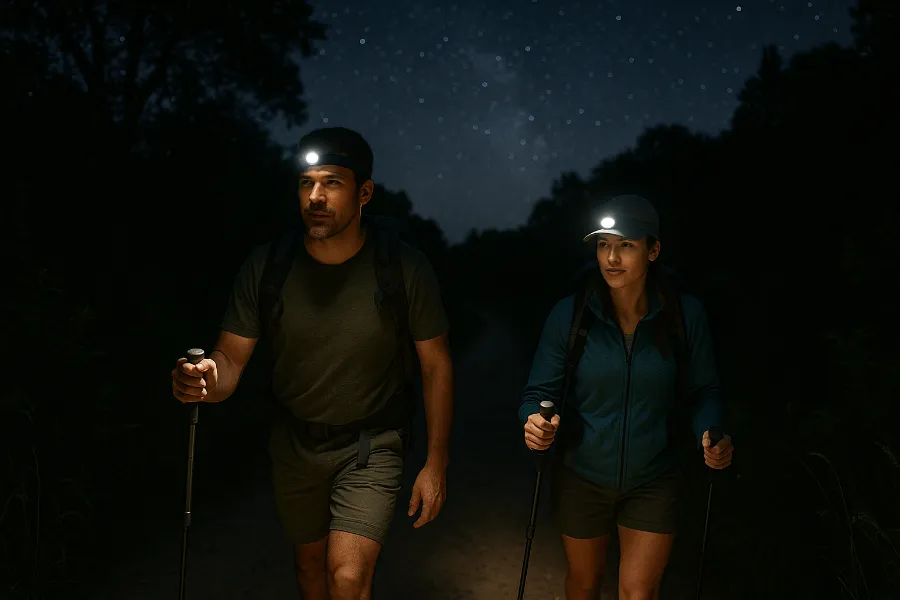
Stay Hydrated and Nourished
Dehydration is one of the fastest ways to overheat.
- Bring plenty of water: A good rule is at least two gallons per person per day, especially if you’re cooking or washing dishes.
- Pack electrolytes: Sports drinks or electrolyte packets help replace lost salts and minerals.
- Freeze bottles: Use frozen water bottles in your cooler. They keep food cold and slowly melt into refreshing ice water.
- Eat light: Stick to fresh fruits, vegetables, and light meals. Heavy, hot food raises body temperature and can make you sluggish in the heat.
Dress for the Heat
What you wear has a huge impact on how you feel.
- Choose breathable fabrics: Moisture-wicking synthetics or merino wool are better than heavy cotton.
- Light colors: Whites and tans reflect sunlight, while dark colors trap heat.
- Hats and sunglasses: Wide-brimmed hats protect your face and neck, while sunglasses guard against harsh rays.
- Cooling bandanas: Soak a bandana or use a gel-based cooling neck wrap for instant relief.
Time Your Activities
The middle of the day is not the time for a long, steep hike.
- Go early or late: Plan strenuous activities like hiking or biking for mornings or evenings.
- Midday = rest time: Use the hottest hours (10 a.m. – 4 p.m.) for shaded naps, swimming, or relaxing under your canopy.
- Night hikes: On safe trails, a night hike under the stars can be a refreshing alternative to daytime exertion.
Be Aware of Heat-Related Illness
Even with all the right strategies, extreme heat carries risks.
- Heat exhaustion symptoms: Heavy sweating, weakness, dizziness, nausea.
- Heat stroke symptoms: High body temperature, confusion, rapid pulse — a medical emergency.
- What to do: Move to shade, hydrate, cool the body with water or wet towels, and seek medical help if symptoms are severe.
Being prepared means recognizing these signs early and acting fast.
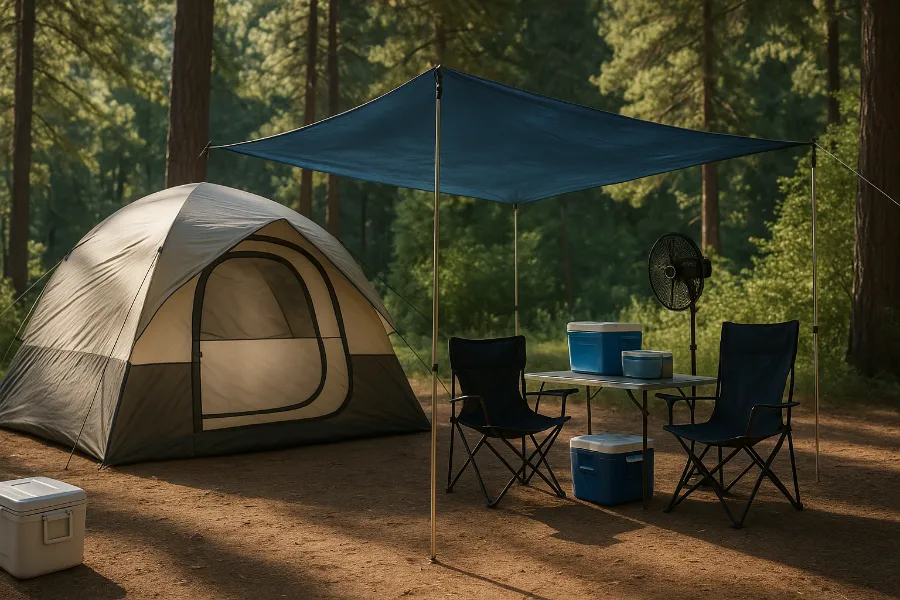
Quick Reference Checklist
Here’s a condensed list of the best ways to stay cool while camping:
- Pick shady, breezy campsites near water or at higher elevation
- Use mesh tents, remove rainflies, and add reflective tarps
- Bring portable fans and create extra shade with tarps or awnings
- Sleep with lightweight sheets or in a hammock
- Stay hydrated and carry electrolytes
- Dress in light, breathable, moisture-wicking clothes
- Time activities to mornings and evenings
- Take cooling showers, dips, or towel wipe-downs before bed
- Watch for signs of heat exhaustion or heat stroke
Final Thoughts
Camping in the summer heat doesn’t have to be miserable. By planning ahead and using these practical ways to stay cool while camping, you can stay comfortable, safe, and energized throughout your trip. Whether it’s choosing the right campsite, tweaking your tent setup, or simply drinking more water, small decisions make a big difference when the temperatures rise.
So pack smart, stay cool, and enjoy the adventure. After all, summer camping is about memories — not overheating in your tent.

